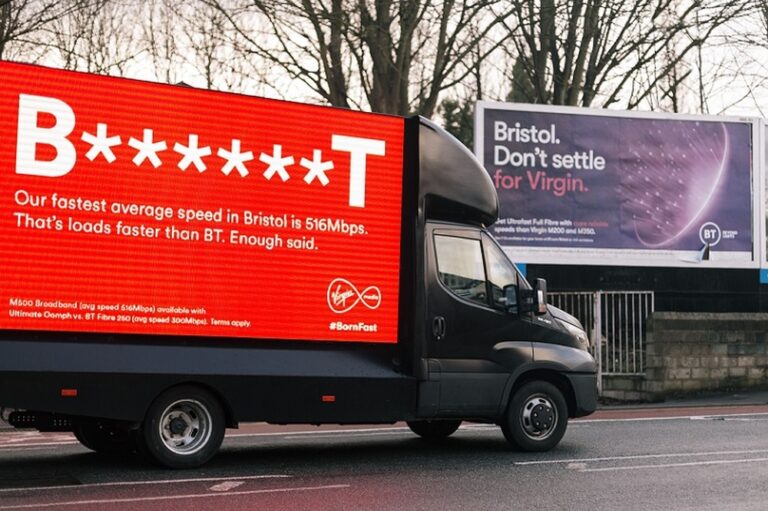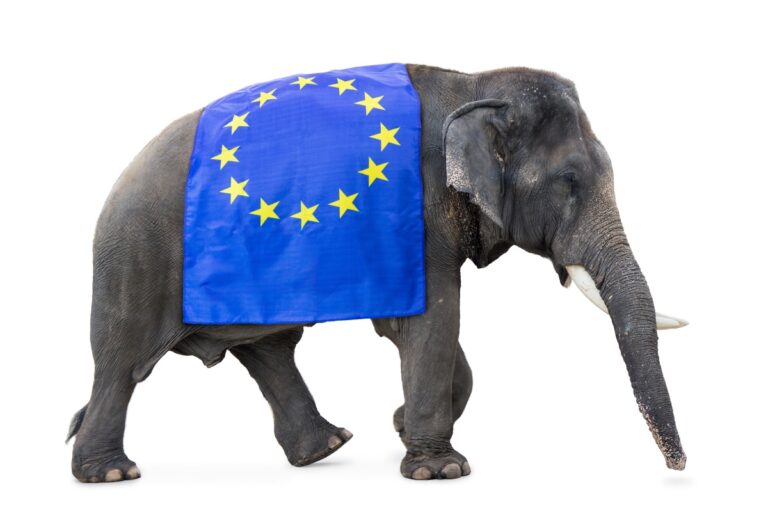The Titanium Economy, fair contribution and new policy
This past year developed very differently from other years, including its immediate predecessor, 2021. Key topics in 2022 include broadband fair cost recovery, OpenRAN, security, geopolitics regarding Russia and China, radio spectrum, the metaverse, the Titanium Economy and assorted points on Alphabet, Netflix and other financial beneficiaries of broadband.
2022: What we called right
In January 2022, we predicted that broadband fair cost recovery would be a big topic in 2022. We were right. Policymakers in the US and South Korea already recognise its time to end Big Tech’s free ride on the world’s broadband networks.
We were also right about OpenRAN when we said that advocates like to talk about it, but mobile operators don’t buy it. Parallel Wireless threw in the towel and many experts agreed that OpenRAN is not ready for prime time.
After Russia’s invasion of Ukraine and in support of transparency, Strand Consult joined the Denis Diderot Committee to expose Eutelsat’s spread of Russian propaganda. French policymakers have been reluctant to bring the issue to the attention of Eutelsat’s leadership headed by CEO Eva Berneke.
At long last, Reporters Without Borders and Members of the European Parliament including Andrus Ansip (former Prime Minister of Estonia) prevailed on the French Regulatory Authority for Audiovisual and Digital Communication (ARCOM) to stop empowering Vladimir Putin and remove news channels from the Russian state.
Organisations can learn a lot from this case. It is what happens if people are politically tone deaf and lack a moral compass. Even though thousands of companies have paused Russian operations or have left the country all together, Eutelsat maintained its footprint in Russia. Its focus on short term profit will hurt the company long term and its misdeeds will subject the satellite industry to new regulation.
Similarly, shareholders now clearly see the risk of doing business with authoritarian China. Relationships with suppliers that put customers’ property, privacy, or security at risk, it not worth having. Those risks have been public knowledge for years and mobile operators in many nations recognised it and opted out of buying equipment from Huawei, ZTE and other Chinese-government affiliated vendors. They did this without increasing cost or delaying 5G roll-out, so it has also been good for shareholders. We applaud the European Commission for updating its state-aid rules so that operators choosing to buy Chinese equipment will not rewarded with payment to remove the malign equipment. Shareholders, not taxpayers, should bear those costs.
Geopolitics in 2023
2023 will be a wild, uncomfortable year: there is war in Europe, a global energy crisis, and inflation is making almost everything more expensive and disrupting financial markets. China menacing Taiwan has the world’s leaders on edge and imperils the global supply of 90% of global semiconductor manufacture. Board leaders and directors must ask what their plan is if China shuts down supply lines tomorrow?
This uneasy geopolitical reality affects the mobile industry. Rising interest rates depress returns on capital, and the willingness to invest in infrastructure. Relationships with authoritarian governments pose reputational risks. Operators can’t stick their heads into the ground and pretend nothing is happening.
Operators that have opted out of equipment from Huawei and ZTE will gain an advantage over those claiming there are no risks attached to using Chinese network equipment. Smart operator can say, “Maybe we can’t offer you a better price, but we can offer you a clean network with reduced risk of Chinese government intrusion.” This message will resonate with policymakers, customers, and shareholders.
Strand Consult closed out 2022 with a new report The Market for 5G RAN in Europe: Share of Chinese and Non-Chinese Vendors in 31 European Countries, which updates our 2020 report Understanding the Market for 4G RAN in Europe: Share of Chinese and Non-Chinese Vendors in 102 Mobile Networks. The report is making an impact: the European Union’s Vice President, Margrethe Vestager, has asked Germany to clean up its act on telecommunications infrastructure.
Increasingly, companies will be obliged to run stress test scenarios vis-à-vis China. What will they do about financial assets and revenue streams dependent on China? How much cloud they lose? How much will be written off? German leaders’ acquiescence to China has become an unaffordable political liability.
The debate is not limited to the US and Europe. Strand Consult provides its security expertise to policymakers in Africa, Asia, and Latin America, collaborating with the Parliamentary Intelligence – Security Forum.
Spectrum
While we find fault with the Chinese government for authoritarianism, it deserves credit for allocating the radio spectrum frequencies to their best technological use for 5G. Simply put, 5G needs mid-band spectrum in the 2.6-6 GHz range to maximise data transmission across larger distances. This is a matter of physics and good management, but US policymakers are failing on this front.
At the time of writing, US Congress still had not reauthorised the Federal Communications Commission (FCC) to carry out spectrum auctions, whereas we argue the FCC should have perpetual auction authority to align incentives and economics to best serve Americans. So far, the FCC’s authority to hold such auctions had only been extended by three months, to March 2023.
It’s hard to contemplate a modern nation being so irresponsible, putting the US government’s opportunity to raise hundreds of billions of dollars on ice, because the Department of Defense is resisting modernisation. The situation is that the US military lost its spectrum edge by waging wars with non-peers for two decades.
Instead of upgrading to the most spectrally-efficient tools on the appropriate frequency, the Pentagon is entrenched with legacy systems on the mid-band beachfront hogging 12 times the spectrum available for 5G. The US’ wireless success is incredible given its limited access to frequencies but to compete with China in future, the US will need to make mid-band spectrum available for telecoms exclusive licensed use.
China does not squander its spectrum resources. It has just unveiled a high-power, low-frequency P-band (216-450 MHz) satellite-hunting radar, reportedly to detect and track low-Earth orbiting satellites (LEOs) progress and functions around the clock in all weather conditions. Observers dubbed it the Anti-Starlink system.
Broadband fair cost recovery
Countries must look at their citizens who lack digital equity, which in many geographies typically means people of colour, those on low incomes and the elderly. Clearly, the traditional concept of universal service should end. Taxing broadband subscriptions to raise money for infrastructure does not scale when it comes to closing the digital divide.
Making broadband more expensive also makes it less affordable for the digitally poor and disenfranchised, where available. Countries will increasingly look to Big Tech to foot the bill for the unrecovered costs they impose on networks. Closing the digital divide globally and getting some 3 billion people online for the first time are the goals of the United Nation’s agency which sets global telecoms standards, the International Telecommunication Union (ITU). In September 2022, the ITU elected a woman to lead it for the first time in its 157-year history.
South Korea, the world’s #1 broadband nation, has long recognized that content providers have a financial responsibility to ensure the quality and delivery of their data and has had operated a cost recovery regime since 2016. South Korea enjoys the highest adoption of FTTH (86%) and 5G (47%) in part because end users are not forced to bear the full burden of the cost of broadband.
Google’s gambit to undermine the policy of good faith negotiation for cost recovery backfired. Google Korea launched a series of Google ads against Korean National Assembly bill and Asia-Pacific Vice President for YouTube, Gautam Anand, warned that the bill would “penalize the companies that provide the content, and the creators who share a living with them.” Some 265,000 YouTubers signed the petition against the bill.
However an Assembly hearing revealed that South Korea’s leading internet advocacy non-profit OpenNet, which was founded with Google as the sole sponsor, received $10 million to espouse policy favourable to the search giant. Lawmakers questioned what looked like lobbying which is outside the organisation’s remit. An official financial disclosure from the organisation had recorded a far lower figure for the amount than the actual gift from Google. A perceived attempt to hijack democratic process is a bad look for the company which is the single largest source of traffic in South Korea.
Fair payment doesn’t damage profit
Big Tech might grumble about having to pay for access to networks in South Korea, but the companies are enjoying record profits. Google Korea reported its 2021 sales grew almost a third over the previous year to 292.3 billion won (€219 million) with an 88% operating profit.
Netflix, another persona non grata, is enjoying record profits in South Korea but declares it has “no obligation to pay for or to negotiate for the use of” another’s network. Strand Consult has detailed the Scrooge-worthy saga of Netflix’s litigation against a local broadband provider in Netflix v. SK Broadband. The David and Goliath Battle for Broadband Fair Cost Recovery in South Korea.
US explores fair-cost models
In the US, there is bipartisan Congressional support for the FCC to investigate the feasibility of a fair-cost recovery regime. Congress failed to rein in Big Tech on the anti-trust front, so fair-cost recovery remains one of the few rational, evidence-based methods to address Big Tech’s alleged abuse of market power, namely its perversion of public policy to achieve corporate goals and the free use of public and private resources.
Economists will have a field day exploring cost recovery business models: market-based pay as you go (PAYG), ad taxes, usage fees, universal service fund surcharges and so on. No one size fits every country but increasingly there is recognition that broadband policy must evolve: the prevailing models of broadband access were enshrined when email was the internet’s killer app more than 30 years ago. Now video accounts for 80% of internet traffic. It’s time policy reflected that reality.
This year Strand Consult will launch an update to its report Middle Mile Economics: How streaming video entertainment undermines the business model for broadband. This describes an investigation into 50 broadband providers in 24 US states and finds that:
• middle mile-costs are growing two to three times faster than household broadband revenues;
• traffic from Big Tech consumes as much as 90% of network capacity; and
• few, if any, broadband providers have been able to monetise the increase in video streaming on their networks.
Metaverse: Second Life 2.0?
Meta (formerly Facebook) calls its metaverse, “the future of digital connection…moving beyond 2D screens and into immersive experiences in the metaverse, helping create the next evolution of social technology.” It’s all very exciting, the dream (or nightmare) of science-fiction turned into a commercialised reality of being ever closer to people you don’t know in a digital world.
The big question is whether it will become a [digital] reality or a replay of Second Life, which flopped big time, having failed Clay Christiansen’s milkshake test – a way of gauging whether a new product or service can become a reliable, affordable substitute.
We think the more interesting questions are whether Meta will pay for the radio spectrum and infrastructure required by the next-generation mobile networks needed to support the metaverse? Meta announced a $19.2 billion investment in the new online universe for 2023 which about half of what the world’s mobile operators collectively spend on RAN in a good year.
Few of the people gushing about the marvels of the metaverse have stopped to think about infrastructure costs, along with the other proposed online “verses”. It is a huge issue for operators that streaming video consumes as much as 90% of internet bandwidth today, how will broadband providers recover costs when even more data is pumped into their networks? How will broadband subscription pricing work then in today’s framework? Will some users want every meta bell and whistle, or just some of the experience? There will need to be policy innovation and business model upgrade before the metaverse is real.
The titanium economy
We are excited about 5G and the mobile industry’s continuous improvement of its networks. 5G for home broadband – Fixed Wireless Access (FWA) – is a game changer and can substitute wireline broadband in many cases. FWA is expected to account for 10% of all US broadband connections soon.
What’s beyond home broadband is the bigger question for 5G. Many want to see 5G transform industrial sectors, bringing a new era of advanced healthcare, transportation and manufacturing. Some leading manufacturers already integrate 5G into their production lines, like John Deere, Bosch, ASML and some carmakers.
The manufacturing renaissance afoot in US is even more exciting. It is led by small and mid-cap companies earning returns that rival the online tech/software sector. They are not widely known or discussed, but there are about 4,000 of them, driving about $200 billion in revenue. Their start-up costs are relatively low, and they take advantage of 5G and technologies it enables like AI, robotics, automation and cloud computing.
Strand Consult’s recommended reading on this is The Titanium Economy: How Industrial Technology Can Create a Better, Faster, Stronger America byNick Santhanam, Gaurav Batra and Asutosh Padhi.
Strand Consult is keenly interested in the 5G value chain, where monetisation will occur and who will win. The major issue is whether operators are positioned to capture the value in applications or services or yet again the OTT third parties will win – in the 4G era, content and application providers took the prize.
Network monetisation has long dogged the mobile telecoms industry. In 2009, GSMA launched a supplement to premium SMS, a reboot of SMS payment introduced in 1999. It was not successful. Strand Consult’s report OneAPI – Next Generation Value Added Services in the Mobile Industry described many of the challenges to launching these kinds of mobile network business models.
The long-term trend for monetising mobile consumer services is that customers get more for less. It may be a boon for consumers that broadband prices have stayed constant (if not fallen) during this cost-of-living crisis, but in the long term mobile operators cannot continually upgrade networks with better technology for declining returns.
The situation can be improved through consolidation, enabling operators to lower costs and gain a better case for investment. We think countries should move from having four to three mobile network operator within markets, as we explain in detail in Understanding 4 to 3 mobile mergers. This includes undue concern by regulators that less competition will result in rising prices.
Net neutrality
Net neutrality is another policy ripe for modernisation and Strand Consult predicts policymakers will pick this up in 2023. The UK regulator Ofcom intends to modernise its rules regarding network neutrality and we predict that other European and Latin American regulators will issue a call for evidence about the impact of net neutrality regulation.
Invariably they will find that the policy is failing consumers, innovators, and investors. These countries want to move forward with 5G smart networks, but they have policy designed to maintain a dumb pipe. This can’t be resolved, even with 5G slicing techniques.
More importantly, consumers are denied freedom of choice as they are forced to value all data uniformly and equally when their preferences show that they have different values – for some, price, reliability or latency is more important than speed, for instance.
Policymakers will see that they are trading away billions of dollars in network investment for the sake of a “look good, feel good policy” which does not serve consumers, start-ups, or investors. No leading 5G nation has hard net neutrality rules, yet regulators and legislatures protect consumers and the ecosystem with competition law and transparency rules. Check out our library of reports and research notes covering this issue for the last decade.
Mobile ESG practices mature
Green energy consumption is a huge issue in broadband. Many mobile telecom operators have formalised environmental, social and governance (ESG) goals in key performance indicators. This has led to “greenwashing” by some corporations, that is, deceptive marketing to create the illusion of goodness and to hide malpractice perpetuated by ESG practices and regulation.
Politicians, regulators, and business leaders often claim to be focused on sustainability. In practice, few really appreciate the difference between being sustainable and “less bad”. Established ESG metrics of CO2 emissions, energy consumption and so on are used as proxies for progress in sustainability, but often performance is just incremental improvement dressed up as sustainability although the negative impact is still there.
The Future-Fit Business Benchmark has emerged to provide clear, actionable guidance on how to operate without negatively impacting people, society and the planet. European solar power producer Better Energy uses Future Fit in its provision of Purchasing Power Agreements for certified green energy to mobile telecom operators, and content and application companies. Its performance model is likely to be adopted even more widely.
Another key lesson is that operating parallel small cell infrastructure is not sustainable: the business case for small cell lies in network sharing. Mobile operators in the UK recently announced trials of a shared small cell network which hosts all four mobile operators.
Conclusion
Strand Consult’s wish is that the war in Ukraine will end in 2023 and democratic freedom will prevail everywhere. We will continue our work in policy transparency to ensure that mobile telecom networks have and maintain sustainability, security, and integrity.
In 2022 Strand Consult published many research notes and reports, and featured half a dozen industry experts on our guest blog. We were quoted in about 1,000 news stories globally and our work took us to every continent but Antarctica. We have made predictions for the coming year for 22 years – check our archive to see how well we did.












